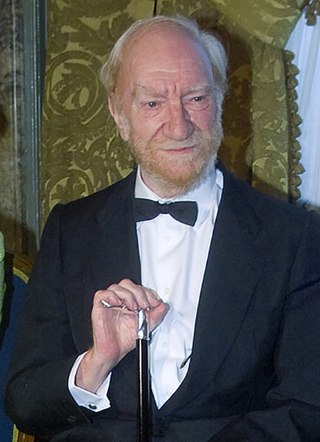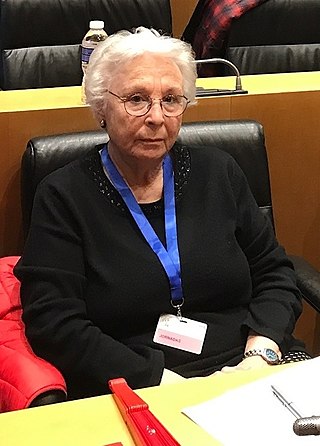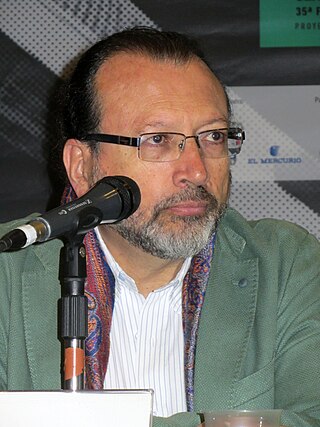
Jorge Mario Pedro Vargas Llosa, 1st Marquess of Vargas Llosa, more commonly known as Mario Vargas Llosa, is a Peruvian novelist, journalist, essayist and former politician. Vargas Llosa is one of Latin America's most significant novelists and essayists and one of the leading writers of his generation. Some critics consider him to have had a larger international impact and worldwide audience than any other writer of the Latin American Boom. In 2010, he won the Nobel Prize in Literature, "for his cartography of structures of power and his trenchant images of the individual's resistance, revolt, and defeat." He also won the 1967 Rómulo Gallegos Prize, the 1986 Prince of Asturias Award, the 1994 Miguel de Cervantes Prize, the 1995 Jerusalem Prize, the 2012 Carlos Fuentes International Prize, and the 2018 Pablo Neruda Order of Artistic and Cultural Merit. In 2021, he was elected to the Académie française.

The Rómulo Gallegos International Novel Prize was created on 6 August 1964 by a presidential decree enacted by Venezuelan president Raúl Leoni, in honor of the Venezuelan writer and President Rómulo Gallegos, the author of Doña Bárbara.

Juan Carlos Onetti Borges was a Uruguayan novelist and author of short stories.

Luis Sepúlveda Calfucura was a Chilean writer and journalist. A communist militant and fervent opponent of Augusto Pinochet's regime, he was imprisoned and tortured by the military dictatorship during the 1970s. Sepúlveda was author of poetry books and short stories; in addition to Spanish, his mother tongue, he also spoke English, Ffor his first novel, El viejo que leía novelas de amor.

Guillermo Cabrera Infante was a Cuban novelist, essayist, translator, screenwriter, and critic; in the 1950s he used the pseudonym G. Caín, and used Guillermo Cain for the screenplay of the cult classic film Vanishing Point (1971).

Fernando Fernández Gómez, better known as Fernando Fernán Gómez, was a Spanish actor, screenwriter, film director, theater director, novelist, and playwright. Prolific and outstanding in all these fields, he was elected member of the Royal Spanish Academy in 1998. He was born in Lima, Peru while his mother, Spanish actress Carola Fernán-Gómez, was making a tour in Latin America. He would later use her surname for his stage name when he moved to Spain in 1924.
Julio Ramón Ribeyro Zúñiga was a Peruvian writer best known for his short stories. He was also successful in other genres: novel, essay, theater, diary and aphorism. In the year of his death, he was awarded the US$100,000 Premio Juan Rulfo de literatura latinoamericana y del Caribe. His work has been translated into numerous languages, including English.

Alonso Cueto Caballero is a Peruvian author, university professor and newspaper columnist.

Latin American literature consists of the oral and written literature of Latin America in several languages, particularly in Spanish, Portuguese, and the indigenous languages of Latin America. It rose to particular prominence globally during the second half of the 20th century, largely due to the international success of the style known as magical realism. As such, the region's literature is often associated solely with this style, with the 20th century literary movement known as Latin American Boom, and with its most famous exponent, Gabriel García Márquez. Latin American literature has a rich and complex tradition of literary production that dates back many centuries.
The Premio Planeta de Novela is a Spanish literary prize, awarded since 1952 by the Spanish publisher Grupo Planeta to an original unpublished novel written in Spanish. It is one of about 16 literary prizes given by Planeta.

Fernando Aramburu is a Spanish writer. He is the author of the novel Patria, which deals with terrorism in the Basque Country. His novels and poems have received important prizes: Tusquets, Vargas Llosa NH Prize, National Critics' Prize and National Prize for Narrative Writing.

Josefina Molina ReigMMT is a Spanish feature film director, screenwriter, TV producer and scene director. She was one of the first female directors in Spain and is also known for directing such notable feature films as Función de noche (1981) and Esquilache (1988), as well as the television series Teresa de Jesús (1984). Esquilache was entered into the 39th Berlin International Film Festival. Teresa de Jesús won several awards, including the Antena de Oro (1984), and the TP de Oro.

Plinio Apuleyo Mendoza is a Colombian journalist, writer, and diplomat. Mendoza was named in honour to the Roman authors Pliny the Younger and Apuleius.

William Ospina is a Colombian poet, essayist and novelist. He was born in Herveo, Tolima. He won the Romulo Gallegos Prize for his novel El país de la canela, part of a trilogy about the invasion and conquest of South America.

Mónica Lavín is a Mexican author of eleven novels, various books of nonfiction, and thirteen short story collections, notable among them Ruby Tuesday no ha muerto ; Uno no sabe ; and her most recent collection, La corredora de Cuemanco y el aficionado a Schubert. In addition, she was awarded the Elena Poniatowska Ibero-American Novel Prize for her work Yo, la peor (2010). Her novel Cuando te hablen de amor (2017) was a finalist for the 2019 Mario Vargas Llosa Biennial Prize for the Novel. She is a member of the Sistema Nacional de Creadores (FONCA), was a teacher for the SOGEM Writers’ School, and was a professor in the Creative Writing Department of the Universidad Autónoma de la Ciudad de México in México City from 2000 to 2024.

The Neighborhood is a 2016 novel by Mario Vargas Llosa. It was published on 3 March 2016 by Alfaguara in Spain, Latin America, and the United States.

The Fernando Lara Novel Award is given annually in Spain by the José Manuel Lara Foundation and the Planeta publishing house to an unpublished novel in the Spanish language. The publication of the finalist (runner-up) work is not expected, although it is sometimes published by Planeta itself.
The Premio Biblioteca Breve is a literary award given annually by the publisher Seix Barral to an unpublished novel in the Spanish language. Its prize is €30,000 and publication of the winning work. It is delivered in February, to a work from the preceding year.

Karoll Iván Márquez Mendoza, is a Colombian actor and singer, known for his starring role in the Caracol Televisión soap opera Oye bonita. He is also known for his roles in Un sueño llamado salsa (2010) and Amor de Carnaval (2012).

















